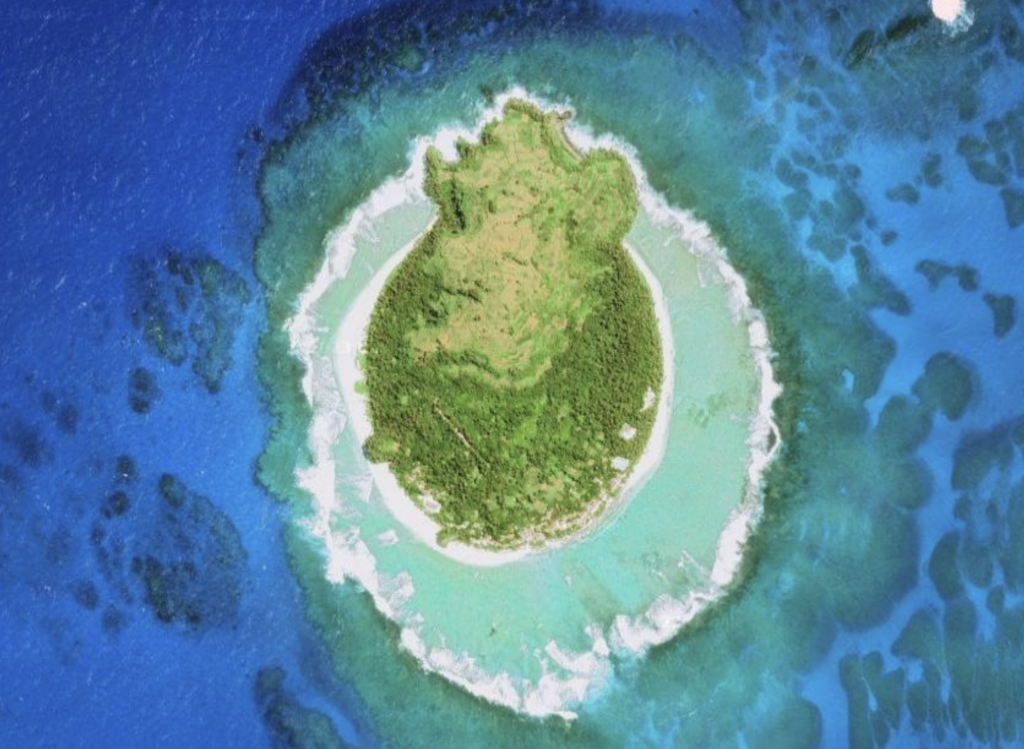Kent State Professor Emeritus Rick Feinberg, an anthropologist, posted the following letter to the Kent State Retirees’ Association on June 6.
I’m taking advantage of my position as (almost ex-)president of KSURA to share sad news about someone none of you have ever met but who had a profound influence on both my academic career and my personal life.
Many of you have heard me talk about my connection to Anuta, a remote Polynesian community in the Solomon Islands. This morning, I received a message from a friend in Honiara, the Solomon Islands capital, informing me that Pu Koroatu, Anuta’s senior chief for 60 years, has passed away. He was about 90 years of age.
Pu Koroatu (aka Jacob Tearaamanu) led Anuta for about as long as Queen Elizabeth served as Great Britain’s monarch. No one in the past century has had a greater impact on the island’s social, religious, and political direction.

I first met Pu Koroatu in 1972, when I arrived to conduct doctoral research on his island. He quickly accepted me as his brother (taina maaori nga maatuaa e tai) and assigned me to share the house of his biological brother, Pu Tokerau, the island’s one English speaker. (Pu Toke then went on to share with me his Anutan name, the name by which I’m still known by my Anutan family.)
Owing to Anuta’s isolation, Pu Vatu (short for Koroatu) and I haven’t been able to see each other very frequently over the years, but we have managed to stay in contact indirectly. Every time I’ve returned to Anuta, he welcomed me back as a valued family member. When I was there in 1983 with Nancy and our two young children, we stayed in his house, and he made sure we had everything we needed to make our visit comfortable.
In 1972, I arrived shortly after a powerful cyclone that had destroyed most of the island’s crops, and no one knew how serious the subsequent famine would be. As chief, Pu Vatu took seriously his responsibility to care for the community and declared that, until the island had fully recovered, his own kainanga ‘clan’ would provide food for everyone from their own gardens. Quickly the second chiefly ‘clan,’ the Kainanga i Tepuko, joined in, and the food was taken from the gardens of the two chiefly kainanga. Then, following the chiefs’ lead, the ‘commoner’ clans (nga pakaaropa) joined in as well. Thus, until the crops came back, the entire community acted as a single household. Food was harvested and shared collectively from all the gardens and distributed to everyone.
Similarly, after a fishing expedition, one of Pu Koroatu’s leading assistants would distribute the catch to each of the households in proportion to the number of household members.
As Pu Koroatu explained to me, “We don’t know how serious the famine will be or whether we will be in danger of starvation. But, if anyone should perish for lack of food, we all will die together.” Even now, when I think of that conversation it brings me to tears.
For anyone who may be interested, a Canadian film crew recorded an interview with Pu Koroatu in 2013. The documentary is available on YouTube here. The interview appears at about the 20-minute mark. It’s in Anutan, and I had the privilege of translating.
Political systems rarely work out in practice as they should in theory. Under Pu Koroatu’s leadership, Anuta is an exception. As in much of Polynesia, those of highest rank are thought to be imbued with enormous spiritual power (mana), and it is their responsibility to use that power to ensure their followers’ well-being. In return for care and protection, followers are expected to pay ritual respect and follow their leaders’ instructions. On Anuta, with Pu Koroatu at the helm, that model largely worked.
Rest in peace my brother. You won’t be forgotten.
Pu Toke (Rick)

